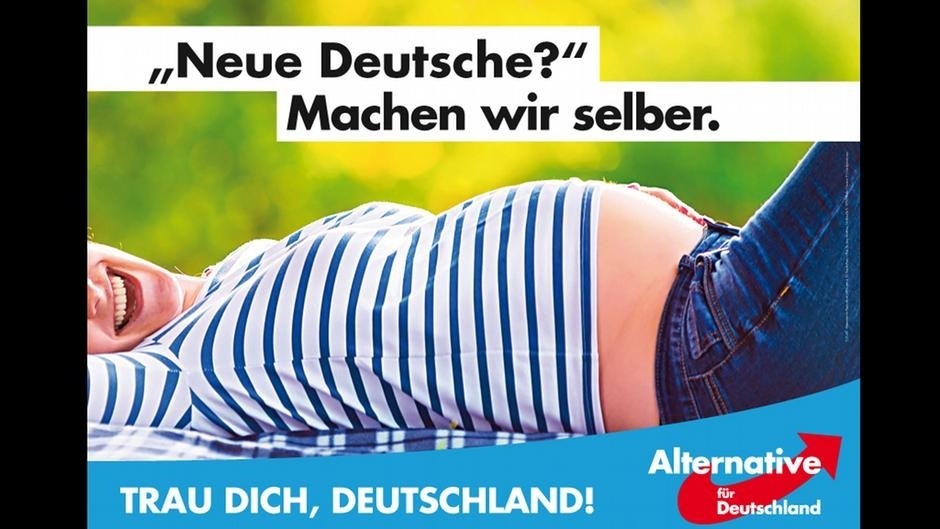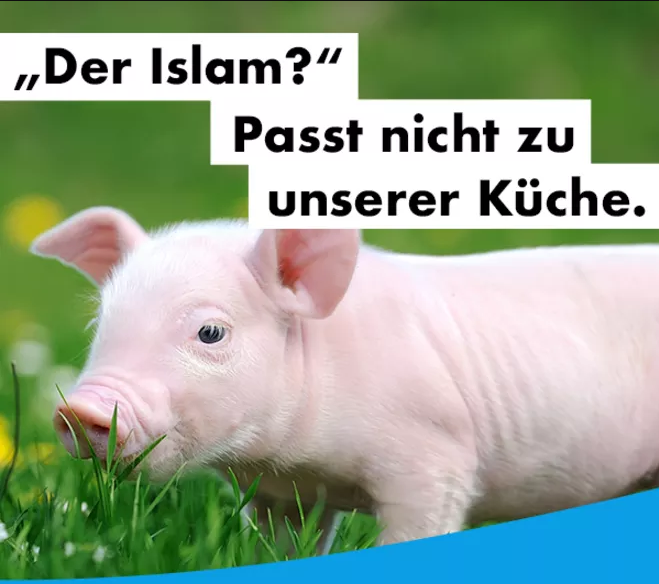AfD poised to be first far-right party in German parliament since the Nazis
The German Bundestag could be set for a new era after the election.
For the first time in more than half a century, a far-right political party are set to join the Bundestag as Germans prepare to head to the polls on 24 September.
Founded in 2013, Alternative for Germany (AfD) has slowly built a movement based upon their anti-immigration and anti-Islam message, leading to the real possibility of them becoming the official opposition in parliament.
Depending on what sort of coalition is formed after the federal election, the AfD, who are currently sitting in third place in the polls, will become the official opposition to the majority in government.
The party has been mired in controversy with discussions that have verged on the sort of nationalism not seen since the dark days of the Third Reich.
German political campaigning, which is normally a stale affair compared to the likes of Britain and the US, has been taken in a new direction thanks to the AfD.
Their campaign posters have targeted Muslims who settled in the country after Angela Merkel's open-door policy saw hundreds of thousands of migrants and refugees enter Germany.
A campaign poster featuring a pregnant women came with the slogan: "New Germans? We'll make them ourselves."
On an image of women wearing bikinis at the beach is the caption: "Burkas? We prefer bikinis."
And a picture of a piglet is accompanied with: "Islam? It doesn't fit in with our cuisine."



Such combative imagery isn't something that modern Germans are used to. For many these sort of slogans and campaigns were consigned to the past, but as the AfD enter mainstream politics, it looks here to stay.
If they end up as the official opposition, their future campaigns will be helped with offices in the parliamentary estate and various funds which could be used for upcoming state elections, and the next federal election in 2021.
Much like similar parties around the globe, their use of social media and online advertising has been key to their success. Many of their best-known ads have been pushed out by the US firm Harris Media; the same firm that worked on parts of the Trump election campaign.
The AfD are in the unique position of being the only major political force poised to enter the German parliament without any hope of forming part of a governing coalition.
Even if it comes at a political cost in terms of votes, the German political elite have shown a united front against the AfD, rather than pandering to them.
The largest parties, Merkel's centre-right CDU, Martin Schulz's centre-left SPD, and the centrist FDP, have all ruled out forming any coalition with the AfD.
Which party will form the third-largest bloc in the Bundestag remains a mystery until the polls close, but although the AfD are edging ahead, a small shift in trends could change all that.
Current polling averages place the AfD on around 11 points, compared to the FDP on 10, The Left party on 10, and the Greens on 8.
Whatever the outcome on Sunday, the Bundestag looks set to enter a new era.
© Copyright IBTimes 2025. All rights reserved.





















